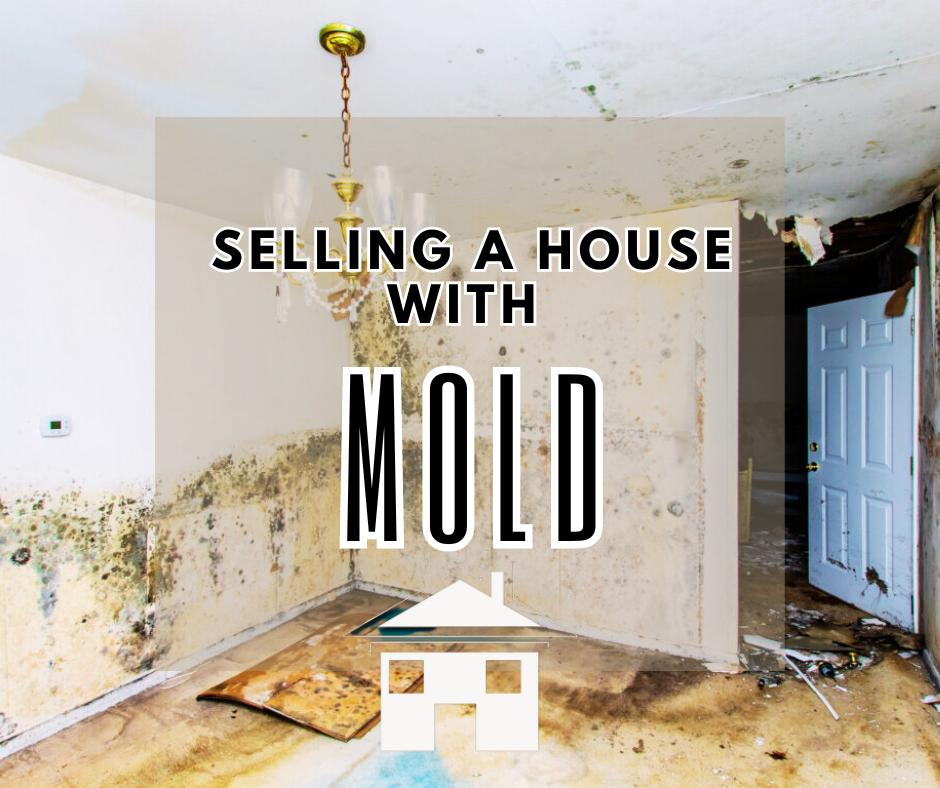Introduction
A. Explanation of the Challenge: In this section, we will introduce the issue of selling a house with mold, explaining the challenges it poses to sellers and why it’s importantant to address the problem.
B. Importance of Addressing Mold Before Selling: We’ll delve into the reasons why dealing with mold is crucial when selling a property. This could include the impact on property value, health concerns, and legal considerations.
C. Preview of the 8 Steps: We’ll offer a brief overview of the 8 steps that will be discussed in the article, giving readers a roadmap of what to expect.
Step 1: Mold Inspection
A. Importance of a Professional Mold Inspection: This section will explain why a professional mold inspection is necessary, highlighting the expertise and equipment required.
B. How to Find a Certified Mold Inspector: Here, we’ll provide guidance on how readers can locate and hire a certified mold inspector, including tips on what to look for.
C. What to Expect During the Inspection: We’ll describe the process of a mold inspection, what the inspector will look for, and how the results will be communicated.
Step 2: Mold Testing
A. Different Types of Mold Tests: This section will explain the various methods of mold testing available, such as air testing, surface testing, and bulk testing.
B. When and Why Testing Is Necessary: We’ll discuss the circumstances in which mold testing is required, along with the benefits of testing in a real estate transaction.
C. Interpreting Mold Test Results: Readers will learn how to understand and interpret the results of mold tests and what actions to take based on the findings.
Step 3: Mold Remediation
A. Discussing the Remediation Process: We’ll describe the mold remediation process, which involves eliminating the mold problem and making the property safe.
B. Hiring Professional Mold Remediators: Information on finding and hiring qualified mold remediation professionals, including factors to consider.
C. Cost Considerations: We’ll address the cost associated with mold remediation and provide insights into budgeting for this essential step
V. Step 4: Disclosure Requirements
A. Legal Obligations of Sellers Regarding Mold: In this section, we’ll outline the legal responsibilities and disclosure requirements that sellers must adhere to when it comes to mold issues.
B. How to Disclose Mold Issues to Potential Buyers: Readers will learn how to effectively communicate mold problems to potential buyers, including the right forms and documentation to use.
C. Potential Consequences of Non-Disclosure: We’ll discuss the potential legal and financial consequences of failing to disclose mold issues, emphasizing the importance of transparency.
Step 5: Repairs and Upgrades
A. Necessary Repairs to Make the House Mold-Free: This section will cover the specific repairs and renovations needed to eliminate mold and make the property safe for sale.
B. Improvements to Increase the Property’s Appeal: We’ll explore ways to enhance the property’s attractiveness to buyers through additional upgrades and improvements.
C. Budgeting for These Expenses: Providing guidance on budgeting for the necessary repairs and upgrades, with cost-saving tips where possible.
Step 6: Marketing Your Home
A. Strategies to Market a Mold-Affected Property: We’ll share effective marketing strategies to present the property in the best possible light, despite its history of mold.
B. Creating a Compelling Listing: Tips on crafting a compelling property listing that addresses mold issues and highlights the property’s positive aspects.
C. Staging and Photography Tips: Insights into staging and photographing the property to showcase its best features while downplaying any previous mold problems.
Step 7: Negotiations and Contracts
A. Addressing Buyer Concerns About Mold: We’ll discuss common concerns that buyers might have regarding a mold-affected property and how to address these concerns.
B. Navigating Negotiations and Contract Terms: Readers will learn how to negotiate effectively and structure contract terms to protect their interests during the sale.
C. Hiring a Real Estate Attorney, if Necessary: Information on when and why sellers should consider hiring a real estate attorney to assist with complex negotiations or legal matters.
Step 8: Closing the Deal
A. Final Preparations Before Closing: This section will cover the last-minute preparations and checks required before the sale is finalized.
B. What to Expect on Closing Day: An explanation of what sellers can expect on the day of closing, including the paperwork and procedures involved.
C. Handing Over a Mold-Free Home to the New Owner: Discussing the final steps in transferring the property to the new owner and ensuring it is mold-free.
Conclusion
A. Recap of the 8 Steps: A brief summary of the 8 steps to sell a house with mold, reinforcing their importance.
B. Emphasizing the Benefits of Thorough Mold Management: Highlighting the positive outcomes of addressing mold issues before selling, both in terms of value and peace of mind.
C. Encouragement for Sellers to Take Action: Encouraging sellers to take proactive steps in managing mold and selling their property successfully.
FAQ section with answers for your article on selling a house with mold.
Q1: Can I sell a house with mold?
A1: Yes, you can sell a house with mold, but it’s essential to address the mold issue properly. Mold can impact the property’s value and pose health risks, so it’s crucial to follow the necessary steps for inspection, testing, remediation, and disclosure to ensure a successful sale.
Q2: Do I need a professional mold inspection before selling my house?
A2: Yes, it’s highly recommended to have a professional mold inspection before selling your house. A certified mold inspector will assess the extent of the mold problem and provide an unbiased evaluation, which can be crucial for both transparency and negotiation with potential buyers.
Q3: What are the legal requirements for disclosing mold issues when selling a house?
A3: Legal requirements for disclosing mold issues vary by location. In many places, you are obligated to disclose known mold problems in your property. Failure to do so can lead to legal consequences and potential financial liabilities. It’s advisable to consult with a real estate attorney or your local real estate authority to understand the specific laws in your area.
Q4: How do I prepare a mold-affected house for sale?
A4: To prepare a mold-affected house for sale, follow these steps:
- Conduct a professional mold inspection and testing.
- Hire certified mold remediation professionals to eliminate the mold problem.
- Make necessary repairs and upgrades to ensure the property is mold-free.
- Create an attractive listing highlighting the positive aspects of the property.
- Be transparent about past mold issues and provide relevant documentation during negotiations.
Q5: Can I negotiate the sale of a house with a history of mold?
A5: Yes, you can negotiate the sale of a house with a history of mold. Buyers may have concerns, but being transparent about past mold issues and providing proof of remediation can help ease their worries. You can also consider adjusting the sale price or terms to accommodate any perceived risks related to mold. It’s essential to communicate openly and work with potential buyers to reach an agreement that satisfies both parties.

Visit https://desertlily.homes/get-a-cash-offer-today/ for more information and expert assistance.
